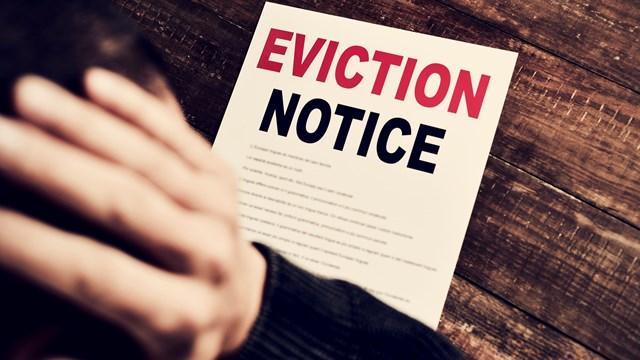The Climate of the real estate market across the country has shifted, and the fallout from the subprime mortgage crisis has been felt in cities and towns throughout the country. The co-op and condo market in New England is no exception, as unit owners, board members and buildings have been affected by the changing tide.
Boston-Area Condos
The pinch of the subprime mortgagecrisis has been felt everywhere as the number of foreclosures increase in the subprime market. This is due to a number of factors, including higher interest rates and declining property values. Many borrowers who had taken out adjustable rate loans are now saddled with higher monthly payments, which they are unable to make. As a result, foreclosures are on the rise.
“The most prominent way it has affected Boston real estate is that it’s removed a substantial amount of the effective demand for real estate. A lot of people who would’ve been able to buy real estate a few years ago can’t do it now. They don’t have the money and they don’t have the credit. With interest-only loans, it was easier to purchase real estate,” says Daniel Polvere of the law firm of McCullough Stievater & Polvere, LLP in Charlestown, Massachusetts.
“A large segment of that demand has been taken out and prices are starting to reflect that. You see it both in terms of how long properties are on the market and the decline in the properties that are selling, but also because prices are coming down around here,” says Polvere.
Although borrowers with subprime mortgages exist across the U.S., and throughout New England, certain patterns have begun to emerge in termsof where the loans are concentrated.
“What troubles us the most is the patterns of lending that we’ve seen. If we look at the high-cost loans, there’s a direct correlation to areas that have a high population of minorities and low income,” says Kathleen Tullberg, manager for the Massachusetts Community and Banking Council andsenior vice president of Eastern Bank in Newton, Massachusetts. “They’re patterns, not proof of anything, but they’re certainly disturbing. Those are exactly the neighborhoods where we see higher cost loans have the higher rates of foreclosure.”
From a management perspective, not every condo or co-op property has been affected. Rather, borrowers who are often first-time homebuyers and have taken on too much debt make up a great deal of the affected population.
“We manage just over 2,500 units in more than 20 properties. I have some properties with zero impact, yet have properties being severely damaged by the subprime meltdown. The impact is mostly specific to the property,” says David J. Levy, PCAM, owner of the condo-management firm, Sterling Services, Inc. in Holliston, Massachusetts.
“For suburban Boston, it was not investors doing flips, as it was in Miami. It was renters with weak credit histories converting to high-risk loans at a totalcost lower than their rent. They were sold the ‘no money down’ method, with 103 percent financing allowed, which means zero money down and legal fees covered,” he says.
The Effect on Condos
This mortgage crisis has a ripple effect, and has impacted not only unitowners who have borrowed money, but the buildings they live in as well.
As unit owners begin to default on their mortgages, associations could see multiple unit vacancies. In addition, asthe monthly payments on adjustable-rate mortgages go up, unit owners and shareholders will no doubt have difficulty paying their mortgages, but their association fees could become delinquent as well.
“I noticed some deals go through with three mortgages at the closing, 80 percent at reasonable rate, 15 percent at a high rate and five percent at rates that were similar to credit cards. The buyers were told to make payments for three to four months, then refinance as the home will be re-evaluated at 10 percent more than you paid for it. Then you can wipe out the third mortgage. Then next year, you refinanceagain and wipe out the second mortgage. In such properties, I have 33 percent of the homeowners more than 90 days past due. Now if you run the numbers a bit more, you will see that maybe 25 percent of the owners are very long term — either resident owners or investors from the conversion back around 1985, just over 20 years ago — and another 10 percent are savvy investors who purchased at very low prices around 1990 during the last meltdown. So of the approximately 65 percent who are semi-recent, half of those are past 90 days on their condo fees,” says Levy.
“I think there are going to be a lot more delinquencies of condos, of unitowners in condo fees and in their mortgages. This affects associations as a whole because they start seeing their income stream drying up,” says Polvere.
Fearing a lack of funding, associations might have to think twice about spending money on building projects —or even repairs—if an increase in maintenance fees seems out of the question.
“It’s very difficult to quantify, but it probably has some psychological effect on everyone. The association might be less likely to take on a major financialexpense. They might defer repairs because they feel it might be difficult to collect the money,” says Polvere.
“The cash flow of the trust is drying up, legal fees to collect are mounting, some owners pay off, some banks pay off, and some homes just go all the way to foreclosure. Any owner who is trying to sell at market price has to compete with the banks selling at distressed price. One of the sources of potential buyers, existing renters interested in becoming homeowners, but who have limited, or even poor, financial credit history, has now been eliminated with the tightening of banking guidelines. All of these factorsare working against a reversal of the current slide in housing prices,” says Levy.
Co-op boards are known for their scrutiny of prospective shareholders, in terms of setting specific financial requirements of anyone wanting to move into a building. In contrast, condo boards do not make the same kind of specification for incoming buyers.
“In a condo, you have a unit owner who wants to sell, and someone who wants to buy the unit, and that’s it. You have a private transaction. Other unit owners and the association have no involvement in the process. The buyer of a unit could be a multi-millionaire or somebody who is going to default next week, and there’s no way the association can do anything about that, or even know about it. The transaction is entirely independent of the association or other unit owners,” says Polvere. “In a co-op there’s typically some review of the buyer, but in a condo there’s absolutely none.”
Not everyone is dealing with vacant units, although as a result of the current market, some owners have experienceda loss of equity.
“In my portfolio, most of the nicer properties have not been impacted as a condo complex, as 99 percent of the condo owners are paying condo fees on time. Clearly some owners now have lost five percent to 15 percent of their equity, yet as long as they pay their condo fees, there is no impact tothe association,” says Levy. “However, for those properties with a flood of recent buyers who used subprime loans to get into real estate at the end of a massive run up in pricing, those properties are well into a true meltdown and it could be a couple of years before these properties reach bottom,” says Levy.
How Boards Can Deal with the Fallout
Foreclosures and delinquencies are nothing new. “From about 1989 to 1993, virtually everything a condo lawyer did was collections or lien foreclosures. From that period to last year, these things came up every now and again. Now it’s a primary activity again and this has become a pressing issue,” says Polvere.
“Smart investors old enough to have watched the last meltdown in the early 1990s can smell blood and correctly perceive that the bottom has not hit. So while the overall home pricing data may say that there is a small correctionof five percent to 10 percent, that is an average, with wild variances in sub-niches — such as properties with significant wild pricing increases from 2000 to 2006, via renters becoming first time home buyers,” says Levy.
So what’s a board to do when unit owners fall behind on their fees? Luckily, there are provisions that offer help.
“There is a fairly straightforward process to act on these things, and certainly since the early 1990s there are substantial legal protections for associations,” says Polvere, citing the Massachusetts super lien law, giving associations the right to recover at least six months worth of fees.
“Also, if the unit is a rental unit, you can ask the renter to pay directly to the association when the owner defaults. Even filing bankruptcy doesn’t removethe lien,” says Polvere.
While there are laws that will help you recover fees, it’s important to act quickly if and when a unit owner defaults.
“A typical problem for associations is when they don’t move fast enough, sometimes because of sympathy. If in a condo, several owners have gone into delinquency, there’s obviously a shortfall,” says Polvere. “They have to act quickly, and might have to special assess other owners. The association will have to make up for the shortfall one way or another.”
How Banks Have Changed Requirements
In recent years, it seemed nearly anyone—regardless of income or creditscore—could get a mortgage. But gone are the days of little or no down payment, in addition to various other attractive mortgage products.
“As far as I know, I don’t think banks have changed very much. Massachusetts banks and credit unions have not been in this business at all. That is why state officials have really been trying to talk to out-of-state companies that have been making these types of loans,” says Tullberg. “Clearly they are the folks who made these mortgages and sold them to investors, who are now foreclosing.”
In terms of getting loan recipients out of hot water, timing is everything. The earlier a borrower tries to get help, the better.
“Local banks have been trying to be as helpful as they can, but in a lot of cases they have been unable to help people who are deeply in trouble. The key is people seeking assistance early in the process, but most people don’t. They think something will happen. Some are in denial and look for help too late,” says Tullberg.
“From the attorneys’ perspective, the pool of lenders has shrunk dramatically. We see more of the old lien lenders, who have not had the more exotic products. Lenders require more substantial down payments and there’s more scrutiny of credit,” says Polvere. “There are more ‘vanilla’ mortgages, typically amortizing. You’re not going to get interest-only loans like before.”
It’s also become more difficult for borrowers to get so-called jumbo loans.
“It’s a lot tighter and there’s a real difficulty in doing jumbo loans now, and that makes it a little more difficult when you’re in the higher end of condos. In Boston, real estate prices are higher, jumbo loans are harder to get, so it’s more difficult to get financing for $400,000, $500,000 or $600,000 units,” says Polvere.
How long the subprime mortgage crisis will last is anybody’s guess. But there’s no doubt that while it’s affecting New England residents, condo and co-op boards will have to be wary of foreclosures and delinquent fees. Shoring up funds to avert a shortfall is one way boards can combat the crisis’ negative effects. But in light of the rise in foreclosures, it’s in the best interest of both boards and unit owners alike to act sooner rather than later should a financial hardship arise.







Leave a Comment